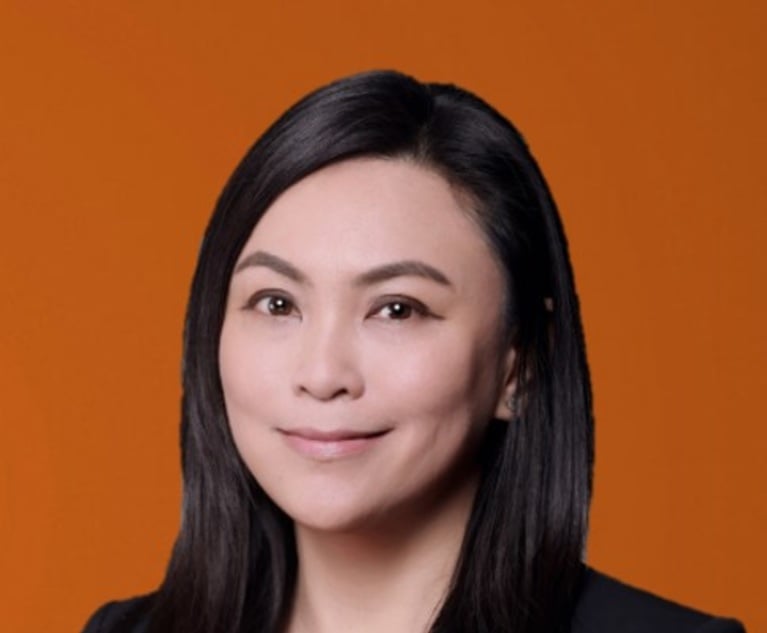French Firms Retool COVID-19 Offerings for a 'New Normal'
A number of firms have established programs geared to advising clients on how to manage in a post-pandemic world.
July 02, 2020 at 02:17 PM
4 minute read
As France redirects its focus away from containing the health crisis of COVID-19 and toward managing the economic crisis caused by the pandemic, law firms are also pivoting to refocus their client advice for the post-crisis era—and many of them are applying the lessons to their own operations as well, managing partners say.
Gide, a leading French firm, has launched "Gide Rebound," an extension of the firm's COVID task force team approach "to work on the consequences of the crisis on corporate life" with clients, according to a statement from the firm.
Two other elite French firms, De Pardieu Brocas Maffei and Jeantet, are also retooling their COVID-19 task forces to include a focus on practice areas that will need more attention in the post-crisis era.
Dentons is targeting the general counsel market in France with its "New Dynamic Toolkit," a group of products and services to help GCs and in-house legal teams "inform their strategic planning and help them navigate the unknown," according to the firm.
In constructing their new offerings, firms are looking at everything from big-picture management philosophy to granular, day-to-day issues, according to law-firm partners involved in the efforts.
"The crisis didn't change everything, but it changed a lot," said Catherine Saint Geniest, co-managing partner of Jeantet. "Now it's normal that everyone wants to speed up and catch up."
The Dentons package for in-house counsel includes advice on "quick pivots," how to scenario-plan for the months ahead, and lessons learned from South Korea, which was early to contain and emerge from its COVID-19 crisis.
Gide Rebound advertises a two-pronged approach to post-crisis management: short-term issues directly related to the COVID-19 crisis, such as health and liability challenges, and structural and long-term changes resulting from the crisis, including the importance of digitalization, corporate social responsibility and potential threats to globalization.
"In the 'new normal,' companies are going to have to integrate deep transformations," said Franck Guiader, head of innovation at Gide. "Some of that transition has already started. Rebound is helping Gide to organize so that it can respond to clients on these broader themes."
A key reason for the pivot is that what clients, and the firms themselves, needed at the beginning of the crisis is very different from what they need now, managing partners told Law.com International.
De Pardieu started carrying the equivalent of a news feed on its website in February, when the French government started issuing new decrees and guidance every day on everything from sick leave to social distancing.
"We were responding urgently to a real demand," said Emmanuel Fatôme, the firm's managing partner. "Our clients needed to understand the government decisions as they were made, and we needed to follow them very closely ourselves to give our clients the best advice."
Now that work is beginning to resume in offices across France, De Pardieu is shifting to a tighter focus on finance and, in particular, government-guaranteed bank loans, known by the French acronym PGEs (for prêts garantis par l'Etat). The program has already backed €85 billion in aid for troubled businesses and the government expects it to expand eventually to €100 billion.
"This is an important element of France's recovery, and an important practice area for us," Fatôme said.
At Jeantet, the firm's initial COVID response also revolved around communications—in this case, producing communiqués and webinars at a fast clip, all of them available to the public.
As the French economy emerges from lockdown, Jeantet is now working on what it calls a "report card": lessons about managing through crisis that are applicable after the crisis has passed, and new areas that will require closer client attention, such as the balance between litigation vs. mediation and arbitration.
"One thing we learned during the lockdown is that everyone has a very different experience of working under these conditions," Saint Geniest said. "It's important to be flexible in managing your workforce, to really listen."
Stéphane Puel, managing partner of Gide, added that the very experience of creating a task force to work on the crisis and its aftermath was useful to the firm as well as to clients.
"At a very difficult, destabilizing time, it was important to feel that we were together and working on something bigger than ourselves," he said. "Like any enterprise."
This content has been archived. It is available through our partners, LexisNexis® and Bloomberg Law.
To view this content, please continue to their sites.
Not a Lexis Subscriber?
Subscribe Now
Not a Bloomberg Law Subscriber?
Subscribe Now
NOT FOR REPRINT
© 2024 ALM Global, LLC, All Rights Reserved. Request academic re-use from www.copyright.com. All other uses, submit a request to [email protected]. For more information visit Asset & Logo Licensing.
You Might Like
View All
New Year, New Ventures: 2025 Kicks Off with Mergers, Alliances, and Hidden Ambitions
5 minute read
Rajah & Tann Strengthens Shenzhen Offering, Renames International Arbitration Head

Dentons Germany Elects First Gender-Balanced Leaders & Promotions at Noerr, Gleiss Lutz
2 minute read
Slaughter and May Leads As Government Buys Back £6 Billion of Military Homes
2 minute readLaw Firms Mentioned
Trending Stories
- 1It's Time To Limit Non-Competes
- 2Jimmy Carter’s 1974 Law Day Speech: A Call for Lawyers to Do the Public Good
- 3Second Circuit Upholds $5M Judgment Against Trump in E. Jean Carroll Case
- 4Clifford Chance Hikes Partner Pay as UK Firms Fight to Stay Competitive on Compensation
- 5Judicial Conduct Watchdog Opposes Supreme Court Justice's Bid to Withdraw Appeal of Her Removal
Who Got The Work
Michael G. Bongiorno, Andrew Scott Dulberg and Elizabeth E. Driscoll from Wilmer Cutler Pickering Hale and Dorr have stepped in to represent Symbotic Inc., an A.I.-enabled technology platform that focuses on increasing supply chain efficiency, and other defendants in a pending shareholder derivative lawsuit. The case, filed Oct. 2 in Massachusetts District Court by the Brown Law Firm on behalf of Stephen Austen, accuses certain officers and directors of misleading investors in regard to Symbotic's potential for margin growth by failing to disclose that the company was not equipped to timely deploy its systems or manage expenses through project delays. The case, assigned to U.S. District Judge Nathaniel M. Gorton, is 1:24-cv-12522, Austen v. Cohen et al.
Who Got The Work
Edmund Polubinski and Marie Killmond of Davis Polk & Wardwell have entered appearances for data platform software development company MongoDB and other defendants in a pending shareholder derivative lawsuit. The action, filed Oct. 7 in New York Southern District Court by the Brown Law Firm, accuses the company's directors and/or officers of falsely expressing confidence in the company’s restructuring of its sales incentive plan and downplaying the severity of decreases in its upfront commitments. The case is 1:24-cv-07594, Roy v. Ittycheria et al.
Who Got The Work
Amy O. Bruchs and Kurt F. Ellison of Michael Best & Friedrich have entered appearances for Epic Systems Corp. in a pending employment discrimination lawsuit. The suit was filed Sept. 7 in Wisconsin Western District Court by Levine Eisberner LLC and Siri & Glimstad on behalf of a project manager who claims that he was wrongfully terminated after applying for a religious exemption to the defendant's COVID-19 vaccine mandate. The case, assigned to U.S. Magistrate Judge Anita Marie Boor, is 3:24-cv-00630, Secker, Nathan v. Epic Systems Corporation.
Who Got The Work
David X. Sullivan, Thomas J. Finn and Gregory A. Hall from McCarter & English have entered appearances for Sunrun Installation Services in a pending civil rights lawsuit. The complaint was filed Sept. 4 in Connecticut District Court by attorney Robert M. Berke on behalf of former employee George Edward Steins, who was arrested and charged with employing an unregistered home improvement salesperson. The complaint alleges that had Sunrun informed the Connecticut Department of Consumer Protection that the plaintiff's employment had ended in 2017 and that he no longer held Sunrun's home improvement contractor license, he would not have been hit with charges, which were dismissed in May 2024. The case, assigned to U.S. District Judge Jeffrey A. Meyer, is 3:24-cv-01423, Steins v. Sunrun, Inc. et al.
Who Got The Work
Greenberg Traurig shareholder Joshua L. Raskin has entered an appearance for boohoo.com UK Ltd. in a pending patent infringement lawsuit. The suit, filed Sept. 3 in Texas Eastern District Court by Rozier Hardt McDonough on behalf of Alto Dynamics, asserts five patents related to an online shopping platform. The case, assigned to U.S. District Judge Rodney Gilstrap, is 2:24-cv-00719, Alto Dynamics, LLC v. boohoo.com UK Limited.
Featured Firms
Law Offices of Gary Martin Hays & Associates, P.C.
(470) 294-1674
Law Offices of Mark E. Salomone
(857) 444-6468
Smith & Hassler
(713) 739-1250








